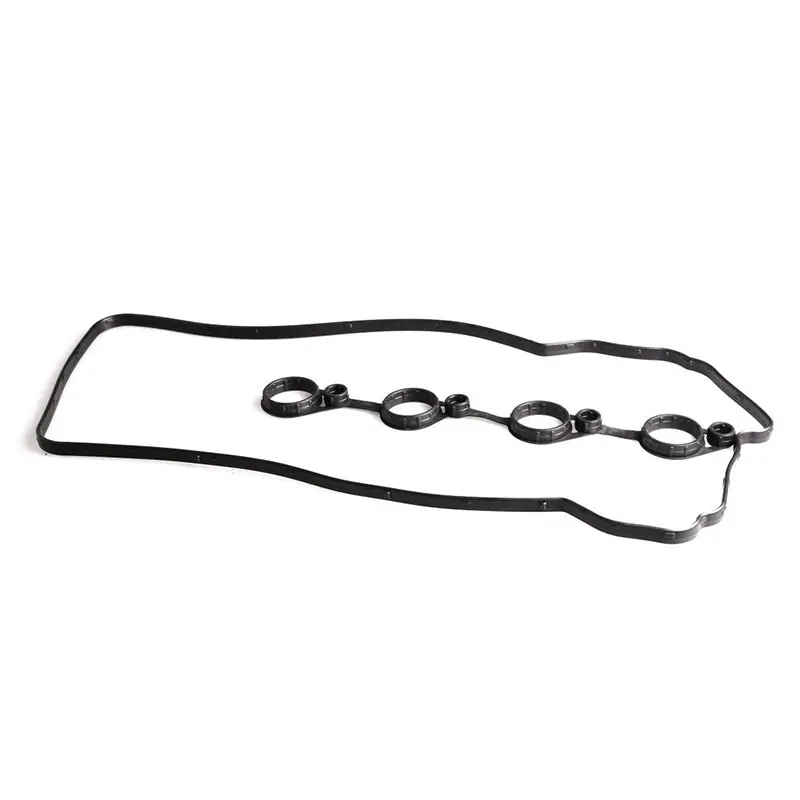10 月 . 07, 2024 10:01 Back to list
hydraulic oil seal
Understanding Hydraulic Oil Seals Importance and Applications
Hydraulic oil seals are critical components used in hydraulic systems to prevent leakage of fluids and contaminants, ensuring smooth and efficient operation. In hydraulic machinery, where high-pressure systems are commonplace, the integrity of oil seals becomes pivotal. These seals help maintain the hydraulic fluid within the system, which is essential for transmitting power. In this article, we will explore the types, materials, and applications of hydraulic oil seals, as well as their importance in various industries.
What are Hydraulic Oil Seals?
Hydraulic oil seals are specially designed devices that fit into the housing of hydraulic components, such as pumps, cylinders, and motors. Their primary function is to prevent the escape of hydraulic oil while protecting the internal components from external contaminants. These seals can be made of various materials, including rubber, silicone, and thermoplastics, engineered to withstand the harsh conditions typically found in hydraulic systems.
Types of Hydraulic Oil Seals
There are several types of hydraulic oil seals, each designed for specific applications and operating conditions
1. Single Lip Seals These are the most commonly used seals, featuring a single lip that makes contact with the shaft. They are ideal for low-pressure applications and are typically used in pumps and hydraulic cylinders.
2. Double Lip Seals These seals have two lips that provide a more effective barrier against fluid leakage and contaminants. They are suitable for high-pressure applications, offering enhanced performance in harsh environments.
3. Rotary Seals Designed specifically for rotating equipment, rotary seals prevent fluid loss while allowing for the smooth rotation of shafts. They are essential in hydraulic motors and compressors.
4. U-Cups These seals have a U-shaped cross-section and are effective in both sealing and containment. They are often used in situations where there is a risk of dirt intrusion.
5. V-Seals V-shaped seals provide effective sealing against dust and other external contaminants while allowing for some movement. They are commonly used in conjunction with other seal types for additional protection.
Materials Used in Oil Seals
The choice of material for hydraulic oil seals is crucial, as it determines the seal's durability and performance. Common materials include
hydraulic oil seal

- Nitrile Rubber (Buna-N) Known for its excellent resistance to oils, fuels, and hydraulic fluids, nitrile rubber is one of the most widely used materials for oil seals.
- Fluorocarbon (Viton) With superior heat and chemical resistance, viton seals are ideal for extreme conditions, including high temperatures and aggressive fluids.
- Polyurethane This material offers excellent abrasion resistance and flexibility, making it suitable for dynamic sealing applications.
- Silicone While not suitable for all hydraulic fluids, silicone seals are advantageous in extreme temperature situations and provide good elasticity
.Applications of Hydraulic Oil Seals
Hydraulic oil seals find applications across various industries
1. Automotive In vehicles, hydraulic systems such as brakes and power steering rely on oil seals to maintain pressure and prevent fluid leaks.
2. Construction Heavy machinery like excavators and bulldozers use hydraulic oil seals to ensure the reliability of hydraulic systems under demanding conditions.
3. Manufacturing Hydraulic presses and injection molding machines depend on oil seals to operate efficiently, maximizing productivity and minimizing downtime.
4. Aerospace In aircraft, hydraulic systems are crucial for controlling various functions, making reliable oil seals essential for safety and performance.
5. Marine Hydraulic systems on boats and ships require oil seals that can withstand marine environments, preventing leaks and ensuring efficiency.
Conclusion
In summary, hydraulic oil seals are integral to the functionality and reliability of hydraulic systems. Their ability to prevent fluid leakage and contamination not only enhances performance but also prolongs the lifespan of hydraulic components. Understanding the types, materials, and applications of these seals allows industries to make informed choices, ensuring efficient and dependable operation of hydraulic machinery across various sectors. As technology advances, the design and materials used for hydraulic seals will continue to evolve, further enhancing their capabilities in an ever-demanding environment.